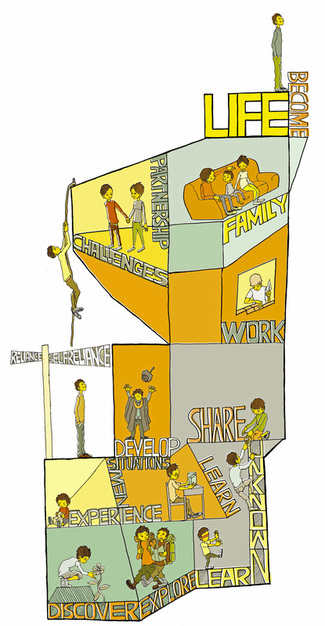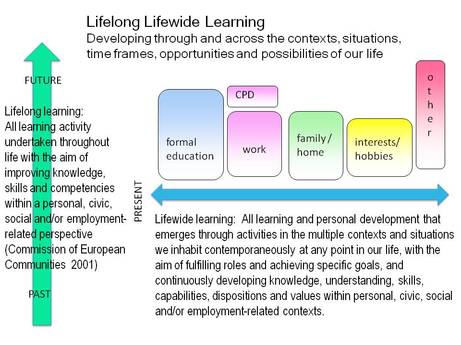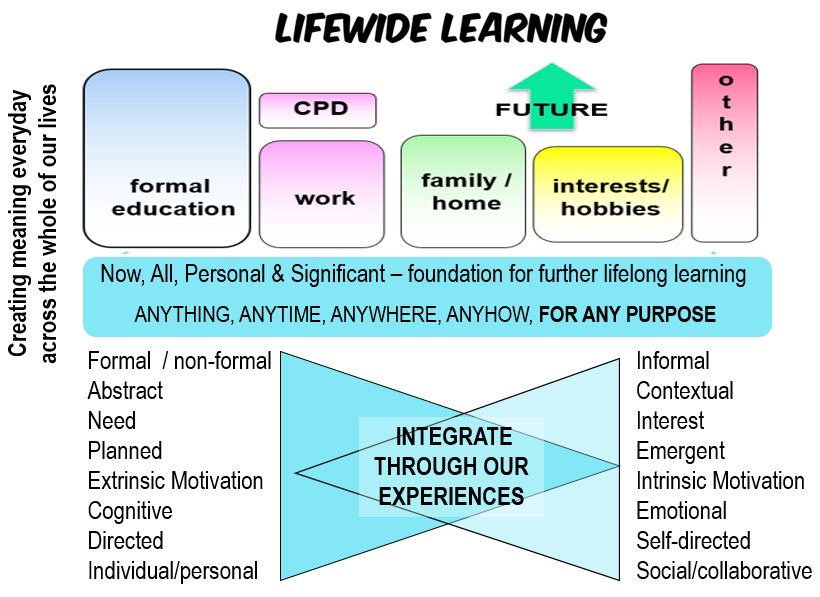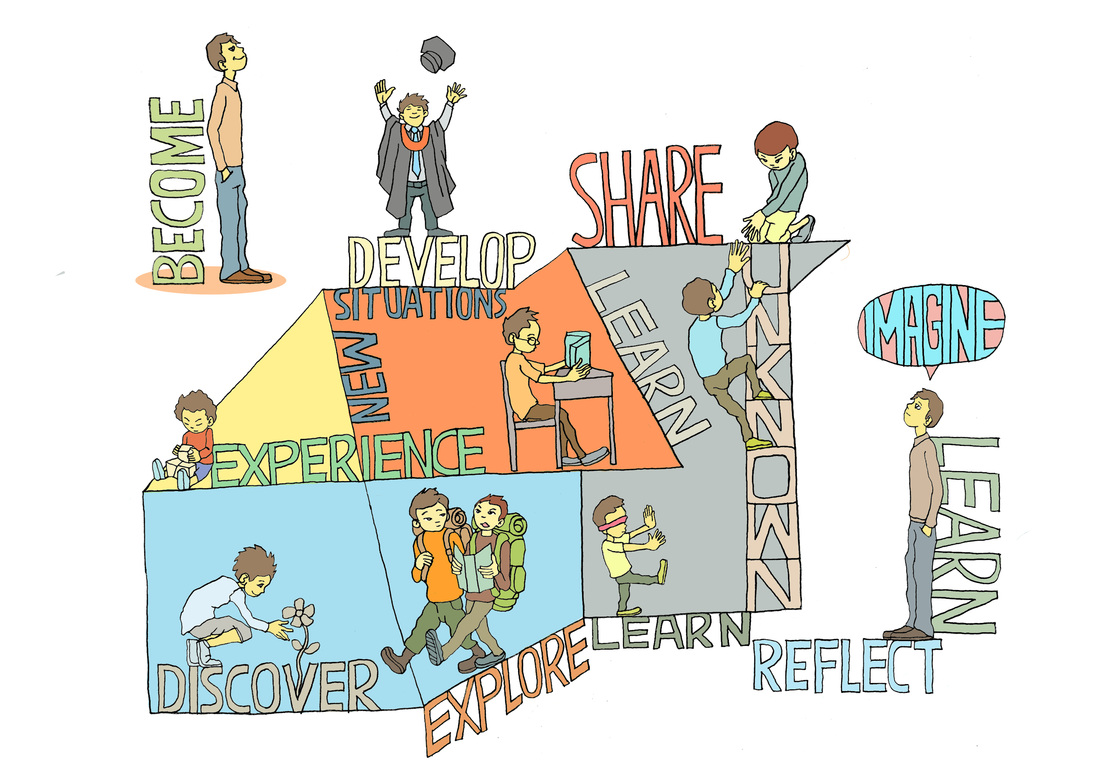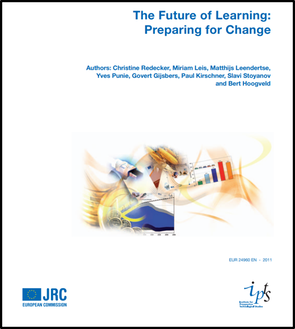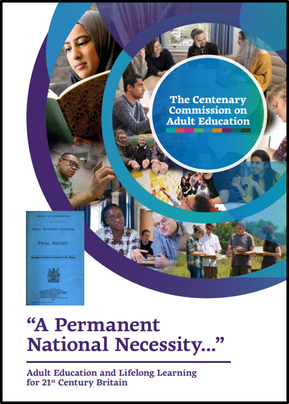|
|
LIFEWIDE LEARNING
Everyone who works in higher education is familiar with the concept of 'lifelongness', the journey we make through the sequential stages of our life beginning as a baby, progressing through childhood, teens to adulthood, middle and old age and eventually death. Viewed at this scale, for most people, formal education occupies only a relatively small part of their lifelong learning activity. The vast majority of their lifespan pre- and post school, college and university, is conducted in the domain of informal experiential learning and personal development. It is ironic that one of the most important things higher education can do to prepare adult learners for learning in the rest of their lives is to pay greater attention to the informal dimension of their learning lives while they are involved in formal study in higher education. By equipping them with tools that enhance their self-awareness, by encouraging attitudes that view life experiences as opportunities for learning and development and by valuing and recognising learning and development gained through life experience, universities and colleges can greatly enhance individuals' preparedness for learning through the rest of their life. Lifewide learning adds value to lifelong learning by recognising that most people, no matter what their age or circumstances, simultaneously inhabit a number of different spaces – like work or education, running a home, being a member of a family and or caring for others, being involved in a club or society, travelling and taking holidays and looking after their own wellbeing mentally, physically and spiritually. We live out our lives in these different parallel spaces so the timeframes of our lifelong journey and the multiple spaces and timeframes of day to day existence across our lives intermingle and accumulate and who we are and who we are becoming are the consequences of this intermingling. The important characteristic of lifewide learning is that it embraces a comprehensive understanding and practice of learning, development, knowledge and knowing and achievement. Lifewide learning includes all types of learning and personal development – learning and development in formal educational environments which is directed or self managed, and learning and development in informal (non-educational) situations. It includes learning and development that is driven by our interests and its intrinsic value, as well as our needs, and learning which just emerges during the course of our daily activity. To be a competent lifewide learner requires not only the ability to recognise and take advantage of opportunities and the will and capability to get involved, it also requires self-awareness derived from consciously thinking about and extracting meaning and significance from the experiences that populate our lives. It is the understanding of what it means to be a lifewide learner that individuals use in future imaginings, decision making and activity and it is this consciousness that lifewide education seeks to develop: what Rogers (2003) calls learner conscious learning within task or experience-oriented learning situations. Lifewide education embraces and recognises these forms of learning, development and achievement. It holds the promise for a more complete and holistic form of education in which people combine and integrate their learning (both formal and informal), their personal or professional development and their achievements. The video clip provides an example of a university student making the most of her opportunities across the whole of her life. RELEVANT POLICY STATEMENTS The EU Commission ‘Memorandum on Lifelong Learning’ (2000) p8-9 recognised three categories of learning activity – formal, non-formal and informal and embraced the idea that all learning should be recogised and valued. It acknowledged for the first time the lifewide dimension of learning. The term ‘lifelong’ learning draws attention to time: learning throughout life, either continuously or periodically. The newly-coined term ‘lifewide’ learning enriches the picture by drawing attention to the spread of learning, which can take place across the full range of our lives at any one stage in our lives. The ‘lifewide’ dimension brings the complementarity of formal, non-formal and informal learning into sharper focus. It reminds us that useful and enjoyable learning can and does take place in the family, in leisure time, in community life and in daily work life. Lifewide learning also makes us realise that teaching and learning are themselves roles and activities that can be changed and exchanged in different times and places.
https://arhiv.acs.si/dokumenti/Memorandum_on_Lifelong_Learning.pdf Europe's Future of Learning Foresight Study incorporated the concept of lifewide learning into its central learning paradigm. 'The overall vision [of learning] is that personalisation, collaboration and informalisation (informal learning) will be at the core of learning in the future. These terms are not new in education and training but they will become the central guiding principle for organising learning and teaching. The central learning paradigm is thus characterised by lifelong and lifewide learning and shaped by the ubiquity of Information and Communication Technologies (ICT).
In 2019 the UK’s Centenary Commission on Adult Education argued for a more rounded comprehensive lifelong vision of education. Their final report , ‘A Permanent National Necessity…’: Adult Education and Lifelong Learning for 21st Century Britain set out a new vision for life-wide adult education for the century ahead. We welcome this strategic vision for the future of adult education in the UK: it provides us with a frame within which to locate our work. beyond higher education and clearly, we have a role to play in helping people, educators and policy makers by sharing our understandings of what lifewide learning and education means and how it can be enabled and supported.
| ||||||||||||
